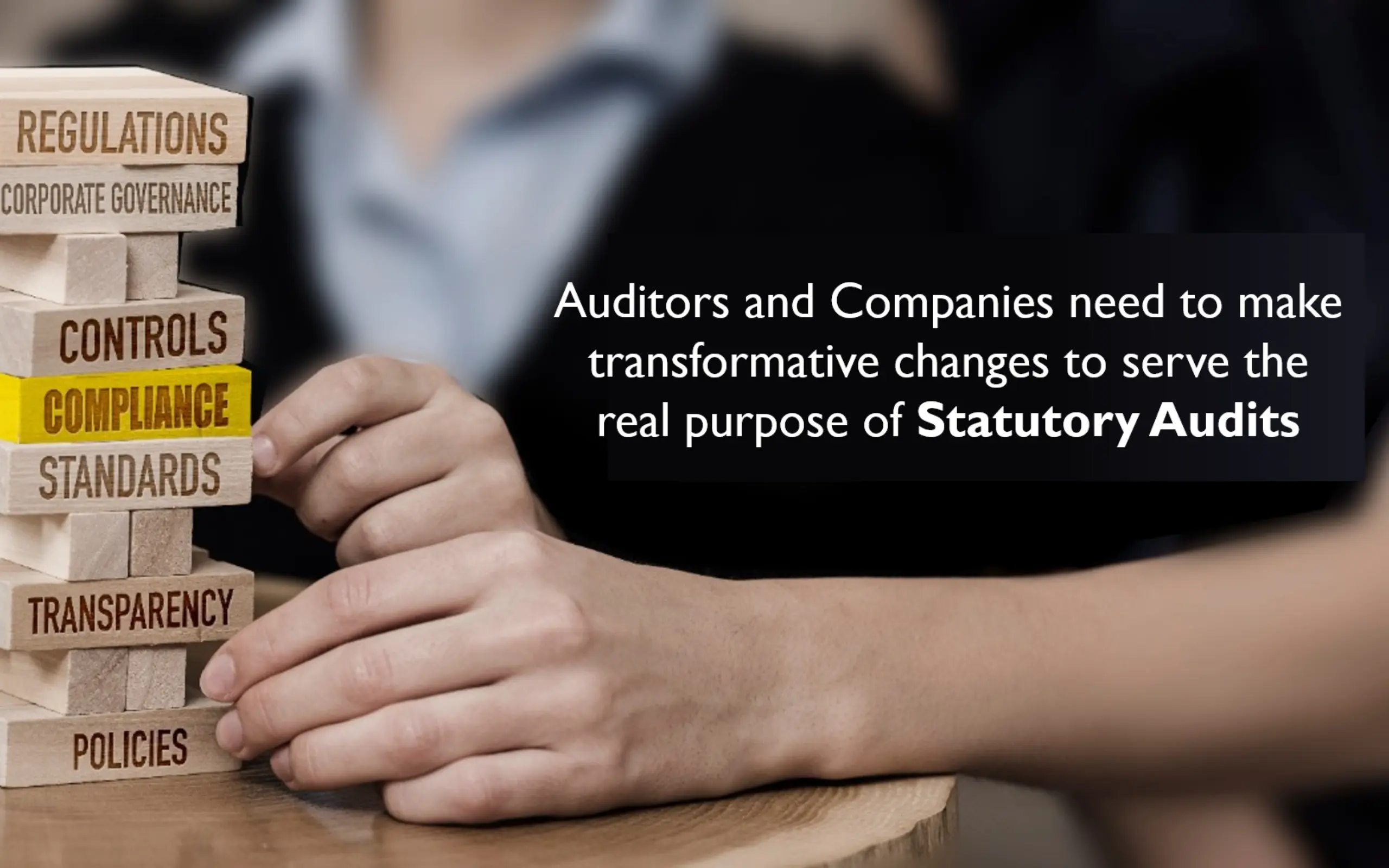With the growing needs of effective corporate governance, Board and CEOs need to be engaged in the audit process and take charge of their financial statements. They must not leave it for their CFOs and auditors but owe up to its stipulations. It does not mean that they have to guard their balance sheets or hold it to their chest.
As business custodians, one must ensure transparency and factual representation but must not cow-down to make compromises about the business prudence due to statutory perceptions, especially that are not specific to their business. Auditors may have their compliance reasons to push these. Still, companies must speak for themselves to prevail upon in the interest of all stakeholders.
It is the CEO’s job to ensure that core business accounting principles are adhered to while abiding by the direction of international accounting standards. The audit must not be feared, or neither its compliance should be circumvented in any way. It ensures ideal risk management and a business empowerment process to strengthen business resilience.
Often businesses and finance teams do give up to the pressure of auditors, forgoing critical business considerations. They must not leave it to auditors to manoeuvre these considerations as per their understanding unless having strong merits. These misconstrued judgments often emanate from a faint knowledge of the business model itself.
It is a typical scene to see a tug of war played between the auditors and companies’ finance. This annual squabble between the auditors and companies though short-lived, but is familiar to most audit engagements. This fracas mostly ensues about the treatment of income and expense statements by the company and audit objections, therein.
Both sides seem to squander whatever they can on either side, entrenching their positions, be it revenues, treatment of expenses, income recognitions, or receivables aging.
There are endless aspects where the auditors and finance do not see eye to eye, with the advent of technology, new algorithm-based analytics and strengthening of IFRS, auditors are looking to more extensive scrutiny. This audit activism is putting a lot more onus on businesses for financial transparency.
However, merits demand proper interpretation of risks, not just hollow perspectives of risk category. These usual business risks are common to business essentials, and provisions such as Expected Credit Loss (ECL) ratio are to be applied wherever needed, not as a blanket application to all business.
The ECL provisions have now become a severe bone of contention as auditors want to have a minimum number for their compliance with accounting standards.
For instance, COVID-19 is an extraordinary phenomenon that has a macro impact. Still, its risk assessment is carried out on the business’s macro and micro aspects. Auditors, while reviewing such risks, must understand the real business impact instead of the standard provisions draconian obligations on all to adhere.
Auditors need to develop a mechanism to differentiate business risk based on industry and the specific business profile of the company.
The recent corporate debacles in the region have indeed put the onus on auditors to exercise extra care while studying balance sheets. But that does not mean this fear-mongering on corporate governance to wreak havoc on the additional burden on the balance sheet of companies.
This audit activism only puts business on higher risk leaving the companies with bloated balance sheets sitting on undue provisions.
I fully endorse that businesses have to exercise due caution in presenting the accurate picture with evidence of tangible facts on various provisions. I agree these need to be given transparent disclosures, and CEOs need to lead the process with full engagement. Still, auditors need to strengthen their diligence approach with transformative measures.
To ease this usual scuffle that is played on the turf, both the sides have to follow a better engagement procedure. The companies must first get an updated charter of the audits with inclusions of new accounting provisions so that the company team may study this in advance and hold internal workshops to ensure that the auditors are provided with proper formats.
Besides, the two must hold prior seminars to address the housekeeping issues as these remain a deterrent for a smooth process. The company’s CEO must be integral to some of the critical milestones than just huddled into signing the balance sheets.
It’s time for both sides to take their respective audit roles and responsibilities more seriously. The audit companies need to bring competent professionals, Article assistants, interns with a thorough understanding of the process and the business itself.
With each passing day, audit has been losing credibility and the process is getting derailed due to the role of interns that are no more than data churners, with their limited knowledge and naïve observations. The managers and the partners need to rise to build more robust diligence based on insights from credible industry data than just a few handpicks of their own.
These have to engage all the stakeholders across the full process than just meeting for a handshake. To sum up, the regulators, too, have to wake up to the reality of the audit woe. It is time to define a mechanism on how audit firms conduct audits and adhere to the minimum qualification criteria for audit professionals and the process therein.
